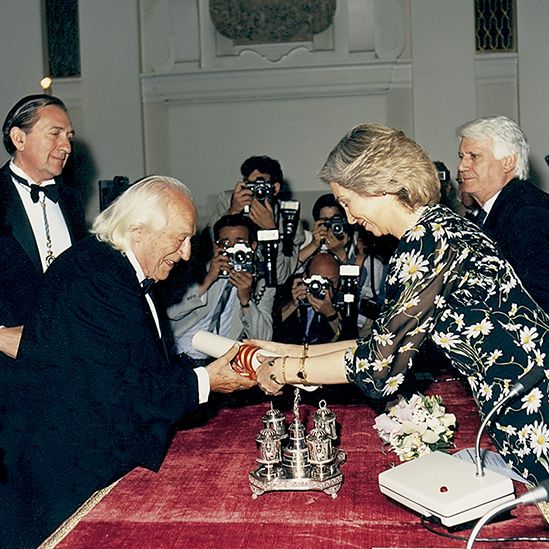Artistic Disciplines
The poet on the streets
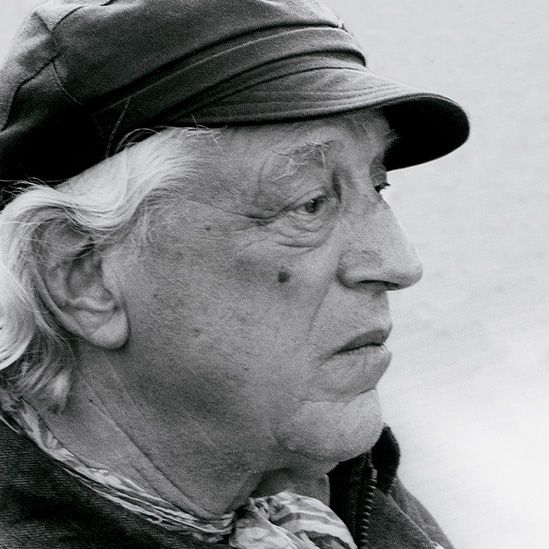
Rafael Alberti's extensive bibliography, from Marinero en tierra (1924) to the third volume of La arboleda perdida (1996), was an exceptional example of an existence fully dedicated to creation.
It is almost impossible to find his compositions detached from the reality that he lived, something that makes him one of the most autobiographical writers of his generation. His birth in El Puerto de Santa María, on the shores of the bay of Cádiz, will forever mark his life and artistic career with indelible traces.
From a very early age he showed an enormous interest in painting, but his real discovery took place in 1917, when he entered the Prado Museum for the first time.
He soon abandoned this first vocation: in 1920, the death of his father marked a new direction in his life, since it was in front of the body of his father that his first verses emerged from his pen.
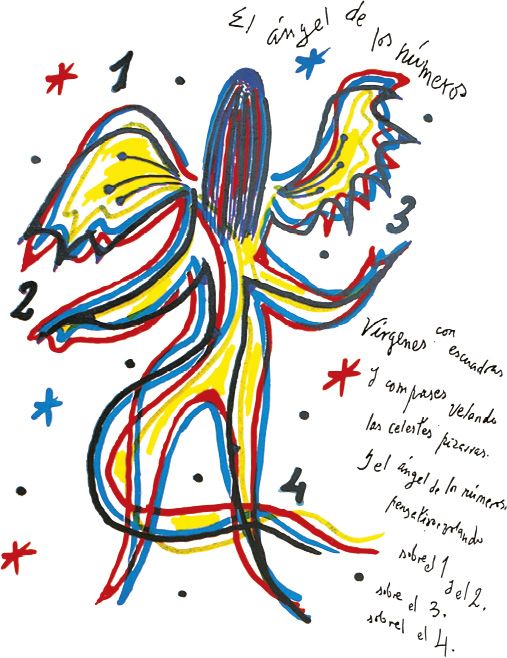
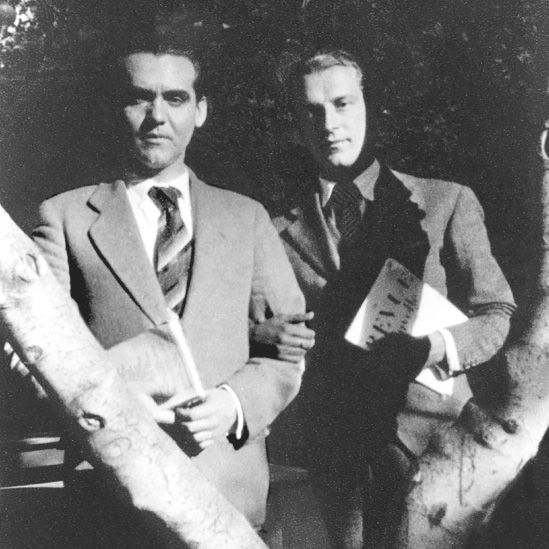
At the Residencia de Estudiantes in Madrid the young man will clearly define his poetic vocation.
He will create indestructible bonds of friendship with García Lorca, Dámaso Alonso, Pedro Salinas, Jorge Guillén, Vicente Aleixandre, Salvador Dalí, Luis Buñuel... all those exceptional names that will make up the mythical Generation of '27. His first book, Marinero en Tierra (Sailor on Land), will receive the National Prize for Literature in 1925. Among the members of the jury, Don Antonio Machado, one of the poets he always admired the most.
His first books of poems, in which he combines the best lyrical tradition with avant-garde freshness and originality, begin to follow one after the other: La amante (1926), El alba del alhelí (1927), Cal y Canto (1929), Sobre los ángeles (1929).
His restless personality will lead him to a progressive and firm social awareness. This will be evident in his civic elegy Con los zapatos puestos tengo que morir (1930), which will turn him into a true “poet in the street”, as he always liked to call himself.
After his support for the Second Republic, his affiliation to the Communist Party and his activism during the war, he went into exile in 1939. This distance from his homeland encouraged his literary activity even more. Thus, during his first year of exile in Paris, he wrote Vida bilingüe de un refugiado español en Francia and Entre el clavel y la espada.
The sustained nostalgia for his separation from Spain will be reflected in books written in Argentina.
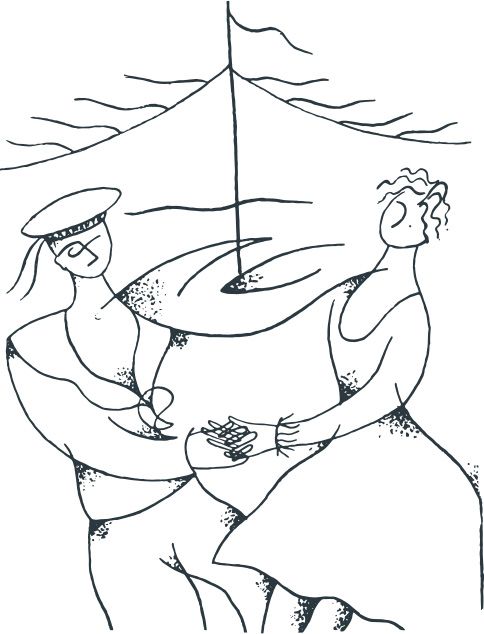
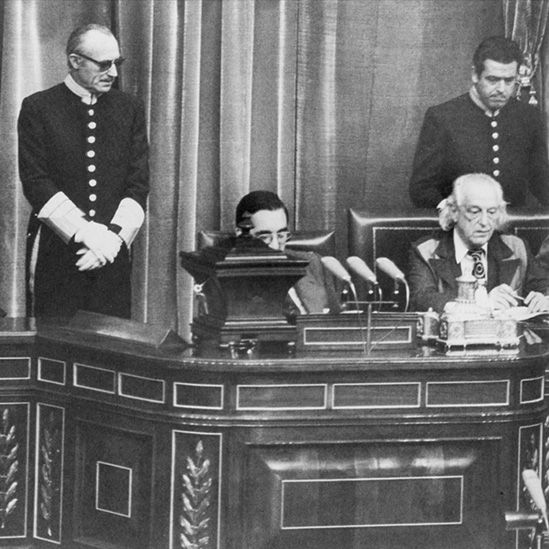
The reinstatement of democracy puts an end to a long exile.
The “poet in the street” will be more than ever when, after a unique political campaign in verse through the streets and squares of Andalusia, he is elected Deputy for Cadiz in the first Cortes Generales, a seat he will resign months later, but without abandoning his political commitment.
His literary work is once again recognized in Spain.
He received such outstanding awards as the Cervantes Literature Prize and the National Theater Prize, was admitted to the Royal Academy of Fine Arts of San Fernando, was named Doctor Honoris Causa by several universities, and published the second volume of his memoirs and several books of poems.
